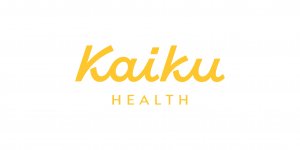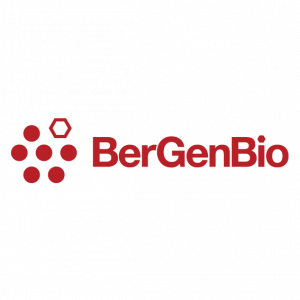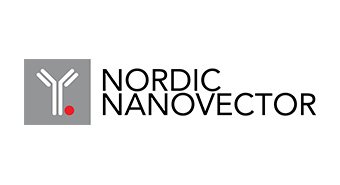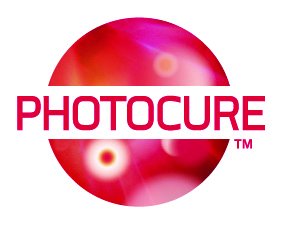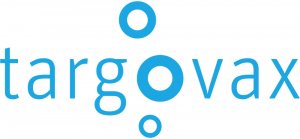Ønsker virtuelle studier til Norge
This article was originally published on our member Inven2’s website and written by Elisabeth Kirkeng Andersen in Norwegian. Oslo Cancer Cluster supports this member’s initiative of introducing virtual clinical studies to Norway.
Inven2 håper at vi snart kan starte såkalte virtuelle kliniske studier på oppdrag fra industri i Norge. Virtuelle kliniske studier innebærer utstrakt bruk av digitale verktøy for å samle inn dataene som er nødvendig for at et legemiddel kan godkjennes. Oslo universitetssykehus og legemiddelfirmaet Bristol Myers Squibb (BMS) er veldig positive.
–Vi har alle forutsetninger for å lykkes med virtuelle studier og det kan være et stort fortrinn for å tiltrekke flere kliniske studier til Norge, sier Siri Kolle. Hun er ansvarlig for kliniske studier i Inven2.
Virtuelle studier kalles også «Decentralised Clinical Trials», og går blant annet ut på å ta i bruk digitale verktøy og avstandsoppfølging av studiedeltakere.
Det svenske Läkemedelsverket er i gang med en kartlegging i Sverige for å finne ut hva som kreves for å gjennomføre virtuelle kliniske studier på en sikker og effektiv måte, og hva som allerede er på plass.
Jenny Söderberg er prosjektleder for dette og påpeker i en pressemelding at nær 70% av potensielle deltagere til kliniske studier er utelukket på grunn av geografiske hensyn.
–Jeg vil tro det samme gjelder for Norge. Dette viser hvilket enormt potensiale for bedre pasientbehandling som ligger i virtuelle studier. Ikke minst kan virtuelle studier bety bedre, bredere og raskere rekruttering til en studie, noe som er det viktigste får både firmaene og pasientene, sier Kolle.
Legemiddelindustrien på ballen
Kolle synes det svenske pilotprosjektet er spennende, og følger spent med på det og andre initiativ rundt virtuelle studier. Hun og kollegaene i Inven2 har allerede gjennomført en forundersøkelse ved Oslo universitetssykehus, basert på at de i starten av 2020 fikk flere henvendelser fra legemiddelfirmaer om hva som er mulig å gjøre innen virtuelle studier i Norge i dag.
–Både videoløsninger for pasientkonsultasjon og elektronisk samtykke kan enkelt tas i bruk allerede. I tillegg har vi sendt flere store legemiddelfirmaer kravspesifikasjonene som Oslo universitetssykehus har, på bruk av informasjonssystemer, så de er informert om retningslinjene sykehuset har på dette, sier Kolle.
Det setter Susanne Hedenstedt stor pris på. Susanne er senior prosjektleder for kliniske studier i Norden i biopharma selskapet BMS, hvor hun også er med i en intern, global, arbeidsgruppe innen virtuelle kliniske studier.
–Virtuelle studier bobler i verden. Det er mange legemiddelfirmaer som ser på muligheten for å gjennomføre hele eller deler av studiene sine digitalt. BMS planlegger å starte opp en virtuell oppfølgingsstudie innen kreft i løpet av 2020, og vi håper å få med et norsk sykehus i den studien, sier Hedenstedt.
Hedenstedt er tydelig på at BMS ønsker å gå i gang med virtuelle kliniske studier, og tror dette kan være en «gamechanger» for pasientene og for utvikling av nye behandlinger, i alle fall innen noen sykdommer.
– Pasientrekruttering er en av de største utfordringene i kliniske studier. Det tar lang tid og forsinker hele prosessen med eventuelt å få godkjent en ny behandling. I tillegg skjer det ofte at en del av pasientene ikke fullfører hele studieperioden. Det kan være på grunn av sykdommen eller andre faktorer, som reisevei. Det er tøft for svært syke pasienter å reise tur-retur til et sykehus hvor studiene gjennomføres. Gjennom virtuelle studier kan vi involvere pasienten på en mer hensiktsmessig måte i deres eget hjem, sier Hedenstedt.
Koronapandemien har satt fortgang i arbeidet med virtuelle studier i BMS. Den globale unntaktstilstanden har ført til at BMS, som ett av mange legemiddelfirmaer, har satt en midlertidig pause for oppstart av nye studier og rekruttering av pasienter til kliniske studier.
– Vi har tatt disse proaktive grepene for å beskytte og ta vare på sikkerheten til både studiedeltakere, våre ansatte og de ansatte på sykehusene som jobber med kliniske studier, sier Hedenstedt.
Hun påpeker at pausen også er satt for å sikre at studiene gjennomføres i tråd med regulatoriske retningslinjer og at dataene holder høy vitenskapelig kvalitet.
–Koronapandemien kommer til å føre til en eksplosjon av virtuelle studier. Det er veldig positivt at Inven2 ønsker å bidra til å innføre dette i Norge, sier Hedenstedt.
Oslo universitetssykehus er positivt innstilt
Så hva er egentlig den største forskjellen på en vanlig klinisk studie og en virtuell, desentralisert klinisk studie?
Begrepet desentralisert er beskrivende, fordi hovedforskjellen er at studieoppfølgingen flyttes så mye som mulig fra et sykehus hjem til den enkelte pasienten. Han eller hun bruker sitt lokale legekontor for blodprøver, og ulike digitale løsninger for å rapportere inn data i studien. Mer avanserte undersøkelser som MR, PET-skan og røntgen må fremdeles gjennomføres på sykehus.
I Norge har begrepet telemedisin gjerne blitt brukt om denne typen oppfølging av pasienter
Telemedisin er et område Norge er langt framme på internasjonalt, på grunn av vår spredte befolkning som i store deler av landet bor langt unna sykehus eller fastlegekontor.
–Det norske helsevesen sin lange erfaring med telemedisin innebærer at vi har alle forutsetninger for å være et foregangsland innen virtuelle studier, sier Kolle.
Noen flere elementer må på plass for å gå fra telemedisin til virtuell gjennomføring av kliniske studier.
–Elektronisk samtykke fra pasientene til å delta i en studie er et element, videokonsultasjoner med lege eller studiepersonell er et annet, og i tillegg kommer utstrakt innsamling av pasientrapporterte data. I dette ligger det at pasienten selv rapporterer om egen fysisk og psykisk helse basert på egen erfaring og helsedata hentet fra ulike former for «wearables», det vil si en pulsklokke eller lignende som måler blodtrykk og andre vitale funksjoner, sier Kolle.
Alle disse tre elementene er i bruk i helsevesenet i dag, sier Peder Utne. Utne leder avdeling for administrativ forskningsstøtte ved Oslo universitetssykehus.
–Digitale verktøy brukes i stor grad i forskerinitierte studier, og det er ingenting i veien for å ta det i bruk i industrisponsede studier. Det som må være på plass er selvfølgelige datasikkerhet, det vil si at de digitale løsningene er trygge i bruk for deltagerne og i tråd med internasjonale retningslinjer for personvern, sier Utne.
Et eksempel på en pågående, virtuell studie i Norge, er koronastudien der Oslo universitetssykehus kartlegger risiko for å bli smittet av koronaviruset. Her bruker de både elektronisk samtykke og spørreskjema for å innhente egenrapporterte data. Så langt har studien over 100.000 deltagere.
–Vi er veldig positive til virtuelle kliniske studier. På et generelt grunnlag mener jeg det meste er på plass for å gjennomføre dette. Det vil være noen utfordringer som er avhengig av den enkelte studiens design. Dette kan gjelde de spesifikke systemene som skal tas i bruk for å hente inn data, samt utfordringer knyttet til personvern og datasikkerhet, samt hvordan endringer i en virtuell studie skal rapporteres til Regional Etisk Komite´(REK), som er ansvarlig for å godkjenne studien, sier Utne.
Han mener at koronapandemien kan være enkelthendelsen som sparker i gang et stort digitalt løft innen helsektoren som en helhet.
–Det er nok på mange måter sånn at legemiddelindustrien har vært for tradisjonell når det gjelder gjennomføringen av kliniske studier, så det blir spennende å se hva som kommer nå, sier Utne.
Korona med digitalt dytt
Koronapandemien har ført til at videkonsultasjoner har blitt tatt i bruk som aldri før ved norske sykehus. Det fortalte flere av landets fremste kreftleger på et webinar Dagens Medisin arrangerte i mars, om hvordan koronapandemien har påvirket kreftbehandlingen i Norge.
–Pandemien har tvunget oss alle til å tenke nytt og ta i bruk digitale verktøy på en annen måte en før. Se på skolesektoren hvordan lærerne fra én dag til en annen måtte ta i bruk videoverktøy for å undervise. Det samme har skjedd med de ansatte i helsesektoren, som fra en dag til en annen måtte forholde seg til pasienter som ikke ønsket å møte opp på sykehuset i frykt for å bli smittet der eller på reisen, eller pasienter som ikke burde utsette seg for risikoen. I noen tilfeller er videokonsultasjon med pasienter enklere og mer effektivt, for både pasient og behandler, sier Kolle.
Hun mener Norge bør utnytte det digitale momentumet koronapandemien har medført, til å endre praksis innen kliniske studier og utføre så mye som mulig digitalt framover.
–Koronapandemien påvirket fra midten av mars av gjennomføringen av pågående studier og særlig oppstart av nye kliniske studier i Norge, siden de store sykehusene alle var i gul beredskap. I en slik global krisesituasjon er digitale verktøy gull verdt for å gjennomføre kliniske studier som normalt på tross av unntakstilstanden, det er det beste for pasientene, sier Kolle.
Nå melder sykehusene i Norge at de er i gang igjen med både pågående studier og oppstarten av nye. Det er ikke tilfellet i verden generelt, særlig land som har blitt sterkt rammet av koronapandemien som Italia, Spania, Storbritannia og USA, melder om store forsinkelser.
–Oppsiden med å ta i bruk virtuelle studier er så mange, så dette må vi få til. I tillegg må vi ta inn over oss at ønsker vi flere kliniske studier til Norge i fremtiden, er vi helt avhengige av å være med på utviklingen og ta i bruk nye verktøy, sier Kolle.
Hun har på vegne av Inven2 spilt inn nødvendigheten av å satse på virtuelle kliniske studier til den nye handlingsplanen for kliniske studier som Helse- og omsorgsdepartementet arbeider med nå.





